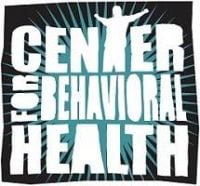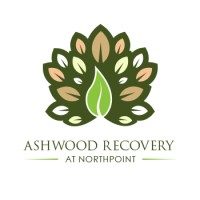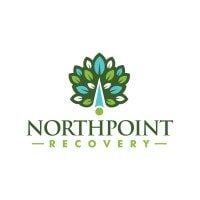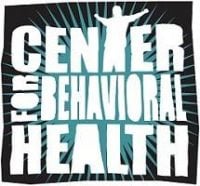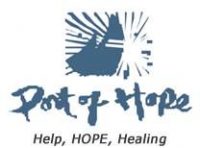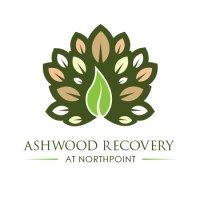Chrysalis Women's Transitional Living
Drug Rehab Center in Boise, Idaho
Chrysalis Women's Transitional Living is a fully accredited substance abuse treatment facility in Boise, Idaho that offers evidence-based programs and a range of services to support women in recovery, including medical detoxification, therapy, educational classes, and spiritual counseling.
About Chrysalis Women's Transitional Living in Idaho
Chrysalis Women's Transitional Living is a residential substance abuse treatment facility located in Boise, Idaho. This facility is designed to provide a safe, supportive, and structured environment for women battling addiction to alcohol and drugs. It is an evidence-based program that helps women to develop the skills and strategies necessary to achieve long-term sobriety. In addition to individual and group therapy sessions, clients can also participate in relapse prevention, life skills, and educational classes.
Chrysalis Women's Transitional Living offers a range of services to support those in recovery from addiction. These include medical and clinical assessments, individualized treatment plans, medical detoxification, 12-Step support groups, cognitive behavioral therapy, trauma-informed care, education about addiction and relapse prevention, and aftercare planning for a successful transition back into daily life. Chrysalis Women's Transitional Living also emphasizes the importance of spirituality and provides spiritual counseling, meditation, and organized spiritual activities.
Chrysalis Women's Transitional Living is fully accredited by the Joint Commission and is licensed by the Idaho Department of Health and Welfare. In addition, they have won several awards and commendations including the Excellence in Recovery award from the Idaho Council on Alcoholism and Drug Dependence (CADD) and the Distinguished Service Award from the National Association of Social Workers. Chrysalis Women's Transitional Living offers a holistic approach to substance abuse treatment and a comprehensive program to assist women in achieving lasting recovery and emotional well-being.
Genders
Ages
Modality
Additional
Conditions and Issues Treated
Many people need to recover from substance abuse to live a healthy life. In the end, if you can get through all the steps: detoxifying your body, rehabilitation after some time or when needed (depending on the type), and recovery while also receiving therapy support throughout the process, it can be worth it.
A detoxification center is a common place to start the recovery process from substance abuse. With your body and mind restored, you can continue to heal without the lingering effects of drugs.
Many people who struggle with opioid addiction need to attend specific programs like methadone , Suboxone or Vivitrol clinics.
These types of programs will provide the patient with legal, prescription medications that can help them overcome their cravings for illegal opioids like heroin or fentanyl . If the patient has a chronic condition like Hepatitis C, they must undergo treatment before they can begin taking these medications.
Levels of Care Offered
This center offers a variety of custom treatment tailored to individual recovery. Currently available are Aftercare Support, Drug Rehab, Inpatient, Residential, Sober-Living / Half-Way, with additional therapies available as listed below.
Inpatient treatment is an intensive program that takes place when a patient checks into a rehabilitation facility. The treatment includes detoxification and counseling sessions, which are round the clock. Outpatient treatments are also available, but inpatient care is advised as the first step of rehabilitation.
Intensive rehab ensures the patient stays in a substance-free atmosphere, improving treatment success rates. The patient participates in group therapy for motivation from other patients who have overcome addiction. Family members are also involved in providing emotional support throughout the program.
Sober Living Homes are an option for those who have completed a treatment program within the past several months. However, it isn’t advisable to use this as a permanent living arrangement because it can lead to a relapse .
The goal of a sober living home is to provide a supportive environment for recovering addicts so they don’t need to return to their previous lifestyles. The homes will not accept residents who are still using drugs or alcohol, and those living in the house must follow a set of rules dictating how they should behave to avoid relapsing.
Residential treatment programs are those that offer housing and meals in addition to substance abuse treatment. Rehab facilities that offer residential treatment allow patients to focus solely on recovery, in an environment totally separate from their lives. Some rehab centers specialize in short-term residential treatment (a few days to a week or two), while others solely provide treatment on a long-term basis (several weeks to months). Some offer both, and tailor treatment to the patient’s individual requirements.
Aftercare is a term that’s used to refer to any sort of continuing care offered for a drug addict who has voluntarily entered a rehabilitation program. This type of care can be provided in several settings, including outpatient therapy sessions after the addict has completed an inpatient program. There are also 12-step support groups, such as Alcoholics Anonymous, which can provide additional help for addicts trying to stay sober.
Therapies & Programs
Individual Therapy is a critical component of addiction recovery. Therapists work with patients to identify the root of their addiction and figure out how to better handle the issues that led to them using drugs. Individual Therapy is the one-on-one session where people meet with their therapist. Individual therapy provides a safe space for people to open up and discuss personal and sensitive topics which they may not feel comfortable discussing in a group setting.
Family therapy will also help families realize that the addiction is not their fault. For many years, people blamed themselves for an addict’s behavior and felt that they had done something wrong. This is not the case. Addiction is a disease, and it can strike anyone, even if their life seems fine from the outside. It can bring a lot of shame to a family when they have an addict in their midst, but if everyone is open and honest with each other, then they can help everyone stay in recovery.
Group Therapy is utilized by drug treatment centers like Chrysalis Women's Transitional Living to provide the recovering drug addict with a platform to talk about their feelings and experiences. It also provides for an opportunity to learn from other addicts who have successfully overcome their addiction.
Group Therapy is employed in lectures, seminars, or discussion groups (the latter two are typically conducted as “therapy groups”). It is recommended that all group members be recovering addicts for this type of therapy to work (though it does not exclude others with lived experience).
Payment Options Accepted
For specific insurance or payment methods please contact us.
Additional Details
Specifics, location, and helpful extra information.
Boise, Idaho 83702 Phone Number(208) 424-1323 Meta DetailsUpdated November 25, 2023
Staff Verified
Chrysalis Women's Transitional Living Patient Reviews
There are no reviews yet. Be the first one to write one.
Boise, Idaho Addiction Information
In 2010, Idaho ranked amongst the top ten states of substance abuse in several categories. Alcohol dependence and abuse pose a major problem throughout the state, especially among minors between the ages of 12 and 17 years old. Opioids, like everywhere else in the nation, are also responsible for many substance abuse problems in the Gem State.
The severity of drug addiction in Boise, ID, is considered to be a serious problem. According to statistics, about 23% of people in Boise, have ID and abuse drugs. In 2017, 1 in 10 high school students reported using an illicit drug other than marijuana. Treatment options vary in terms of length, intensity, and cost, so it is important to do your research to find the best fit for your needs.
Treatment in Nearby Cities
- Garden City, ID (1.0 mi.)
- Rexburg, ID (221.7 mi.)
- Sugar City, ID (224.1 mi.)
- Gooding, ID (89.7 mi.)
- Plummer, ID (258.3 mi.)
Centers near Chrysalis Women's Transitional Living
The facility name, logo and brand are the property and registered trademarks of Chrysalis Women's Transitional Living, and are being used for identification and informational purposes only. Use of these names, logos and brands shall not imply endorsement. RehabNow.org is not affiliated with or sponsored by Chrysalis Women's Transitional Living.

